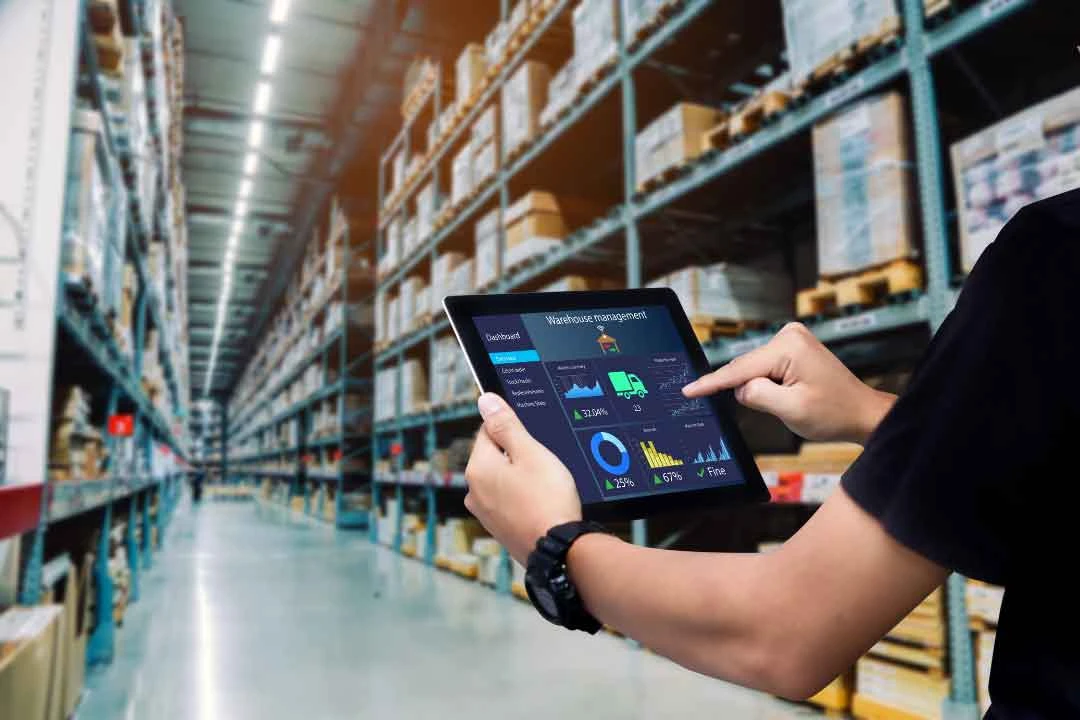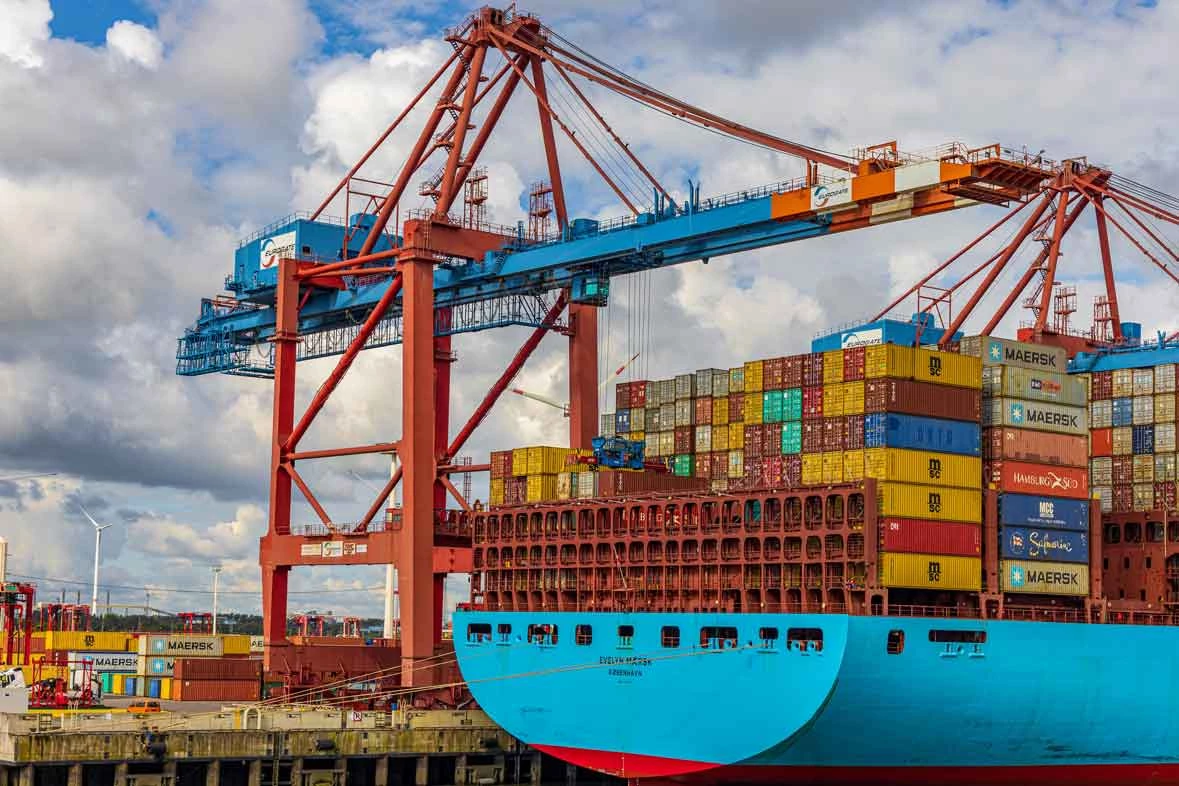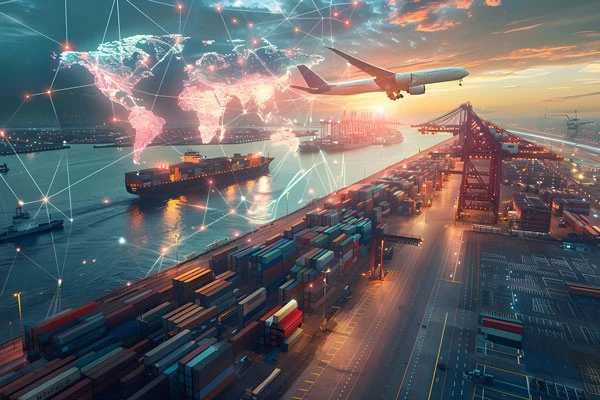Emphasizes the need for the logistics sector to ensure its role in maintaining supply chains
Yet to match its potential
In the Agility’s 2022 Emerging Markets Logistics Index report, Vietnam ranked 11th among the Top 50 emerging market countries in the logistics market and stood 4th in the Southeast Asia region. Additionally, according to the World Bank’s assessment, Vietnam is also highly ranked in emerging markets. The annual growth rate of the industry is around 14-16%, with both the quantity and quality of logistics services improving. This sector significantly contributes to Vietnam’s total trade value, which reached $616.30 billion USD in the first 10 months of 2022 alone, marking a 14.06% increase compared to the same period in 2021.
These achievements are attributed to Vietnam’s continuous pursuit of innovation, including rapid and sustainable development based on science and technology, innovative transformations, and digital shifts. Vietnam also persists in reforming and enhancing the quality of its socio-oriented market economy system, making it comprehensive, modern, synchronized, and effective in enforcing laws. The country is building a self-reliant economy rooted in technological mastery and active integration, market diversification, and heightened economic adaptability. Among these efforts, comprehensive international economic integration serves as a vital driver for economic growth and strengthening Vietnam’s competitive edge and position.
Furthermore, Vietnamese logistics service companies are actively changing their operational approaches, investing in equipment, emphasizing human resource development, and undertaking digital and green transformations to adapt to new developmental conditions and meet increasingly stringent customer demands for environmentally friendly services.
Deputy Minister of Industry and Trade – Do Thang Hai, stated during the 2022 Logistics Forum for the Europe-America region, that the development of Vietnam’s logistics sector is closely intertwined with significant achievements in economic development. This success is due to opening up markets, integrating into the global economy, and actively participating in free trade agreements (FTAs) with profound and comprehensive commitments. These efforts have brought forth numerous opportunities for the entire Vietnamese business community and especially for logistics enterprises.

However, the logistics activities of Vietnamese companies are still considered to not fully capitalize on local economic advantages and potential. The logistics infrastructure supporting these activities
and the connectivity between commercial, transportation, and information technology infrastructures both domestically and regionally are not yet sufficiently developed. As a result, the efficiency of logistics operations still faces challenges and shortcomings, including high logistics costs, particularly elevated maritime transport costs, causing difficulties for import and export activities. Instances of disruptions, disruptions, and local congestion in the transport supply chain, especially in road and sea transportation, still occur. The implementation progress of certain logistics infrastructure projects is slower than planned, and maintenance work on transportation infrastructure, especially road infrastructure, sometimes lags behind.
Need for sharing and responsibility from state management agencies
Resolution No. 163/NQ-CP dated December 16, 2022, regarding the “Enhancement of Coordinated Implementation of Key Tasks and Solutions to Improve the Competitiveness and Development of Vietnam’s Logistics Services,” has recognized logistics as a crucial service sector within the overall structure of the national economy. It plays a role in supporting, connecting, and promoting economic and social development both nationally and at the local level, contributing to enhancing the economic competitiveness. The development of logistics services is aimed at creating a sector that adds high value, connecting logistics services with the development of production, domestic trade, imports and exports, and the development of transportation infrastructure and information technology.
In the context of an increasingly open and integrated economy, the scale of road, sea, air, and rail transportation of goods is substantial. This fertile ground provides opportunities for companies in the logistics sector to explore. However, the key lies in establishing links between logistics companies, between logistics and manufacturing enterprises, and encouraging knowledge and experience sharing and trust- building among these entities. Simultaneously, forming a network of large enterprises with leadership capabilities in the market is crucial. The goals include seeking and sharing orders, reducing logistics costs, and enhancing the competitiveness of Vietnamese products and goods.
Furthermore, strengthening the connection between business associations in the logistics sector, among logistics service companies, between logistics business associations and industry associations, between logistics companies and manufacturing and trading businesses, and boosting cooperation between educational institutions and businesses for training and developing human resources to serve the logistics industry are essential.
These activities not only require proactive engagement from businesses but also supportive policies, sharing, and responsibility from state management agencies. Especially, it calls for the reinforcement of economic region linkages, including interregional and intraregional connections in building the logistics system. This involves strengthening coordination among management agencies, ministries, sectors, and localities in constructing and implementing policies and mechanisms related to logistics operations and other supporting policies. Enhanced cooperation and linkage between state management agencies and businesses through associations are also vital.
Featured news

Developing the potential of the supply chain by simplifying work processes.
It's not only enhances operational efficiency but also establishes a solid foundation for navigating unforeseen challenges.

Emphasizes the need for the logistics sector to ensure its role in maintaining supply chains
Situated in the dynamic development region of the world, where trade flows converge significantly, and with a large open economy, Vietnam’s exports, imports, and e-commerce trade have been consistently growing at double-digit rates. Vietnam is consistently evaluated as one of the markets with tremendous potential for developing logistics services.

Long-term sea freight contract prices rise sharply despite a slow decline in spot rates.
Recently, the prices of some long-term sea freight contracts have surged. However, container shipping spot rates on major East-West trade routes continue to decline.






.jpg)